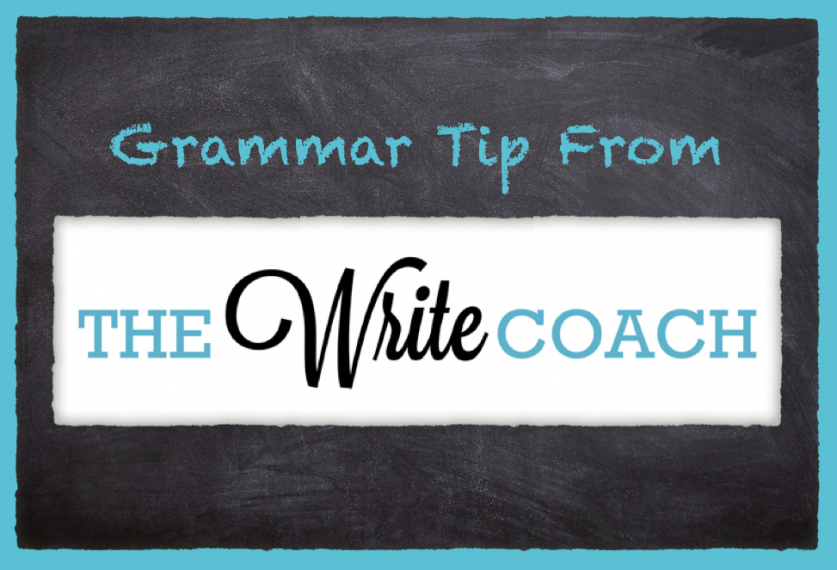What do we use to describe nouns?
Adjectives.
It is time for our monthly grammar tip! As I have mentioned in previous lessons, knowing how to take apart the English language helps you use words correctly and organize sentences.
Knowing how to write properly is essential no matter what your profession.
Click this link to find previous Grammar Tips.
Fun Fact!
Adjective comes from Latin (nōmen) adjectīvum "additional (noun)." (according to Wikipedia)
The job of an adjective
So, an easy way to remember what an adjective does is keep in mind it is an additional noun or more specifically it describes a noun.
What does an adjective describe?
Describes quality of the noun
Ex. My brother purchased a car.
My brother purchased a small car.
Sissy has become an editor.
Sissy has become an excellent editor.
My parents are buying a house.
My parents are buying a huge house.
Describes quantity of a noun or extent, to specify a thing as distinct from something else.
Ex. My brother purchased labs.
My brother purchased two black labs.
My parents are buying a house.
My parents are buying the yellow beach house.
Please use the serving dishes.
Please use the three white serving dishes.
You can easily find the adjectives in the sentences above because they come before the noun.
How do you create eloquent descriptions? Grammar Tip From #TheWriteCoach
Important Note:
Adjectives do not describe verbs, adverbs, or other adjectives.
Adjectives Complement
Adjectives are most known for modifying nouns, but also complement linking verbs or the verb to be. An example of linking verbs is to feel, to touch, to taste, or to seem, describes a state of being or a sensory experience.
Also known as Predicate Adjective
Ex. The dog is happy.
It smells disgusting in the kitchen
Flying by plane is faster than driving.
Three Forms Of Adjectives
Absolute Adjectives:
According to www.EnglishGrammar.org, "Some adjectives express ideas that cannot be graded. For example, a person can’t be more or less dead. In the same way, a sphere can’t be more or less round. In grammar, these adjectives are called non-gradable or absolute adjectives."
Ex. It is a cool game to play on the computer.
Her messy room causes me stress.
My mischievous son makes me laugh.
Comparative Adjectives:
You can guess what they do. COMPARE!
One-syllable adjectives - add the suffix -er (or just -r if the adjective already ends with an e).
Two-syllable adjectives ending in -y, replace -y with -ier.
Multi-syllable adjectives, add the word more.
Ex. Nintendo released a cooler game today.
She is messier than her sister.
Stan is more mischievous than my son.
Superlatives Adjectives:
The superlative adjective questions the highest degree of quality.
One-syllable adjectives - add the suffix -est (or just -st for adjectives that already end in e).
Two-syllable adjectives ending in -y replace -y with -iest.
Multi-syllable adjectives add the word most.
When you use an article with a superlative adjective, it will almost always be the definite article (the) rather than a or an. Using a superlative indicates you mean a specific item or items.
Ex. Wii has the coolest games available.
Sara is the messiest roommate.
Stan is the most mischievous child in the entire school.
Create Interesting Sentences
Descriptions bring your writing to life. However, let me warn you too much description can bore your readers to tears. Find the right balance in giving them enough information to keep reading, but do not word vomit all over your writing project.
Eloquent descriptions can engage your reader to keep turning the page waiting for more. Find ways to bring your stories to life whether you are writing fiction or nonfiction you want the reader feeling like they are right next to you as the story unfolds.
Learning to write eloquently takes time and practice. It is achievable for everyone who works at becoming an excellent writer. An excellent writer does not always write perfect prose. Seek excellence, not perfection. Excellent writers edit every piece of work multiple times.
Time to be excellent!




